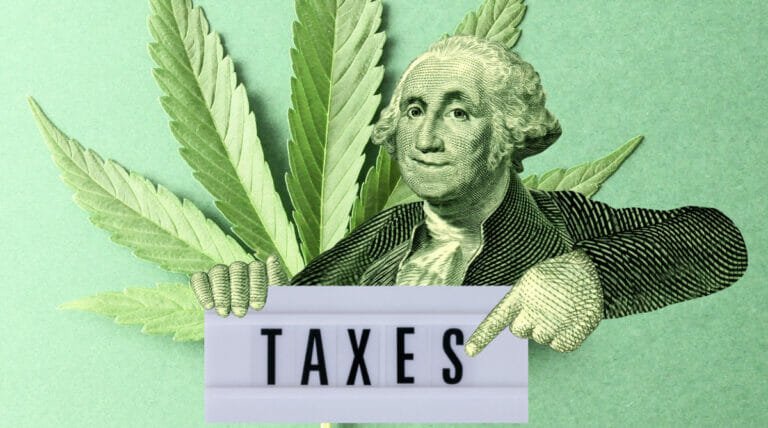Lawmakers passed the Michigan Regulation and Taxation of Marihuana Act (MRTMA) in 2018. Through the act, local cities collect a 10 percent Marihuana Retailer’s Excise Tax and a 6 percent sales tax on retail marijuana sales.
This year, the Michigan Department of Treasury distributed about $100 million to 108 cities across Michigan. Also receiving funds are 74 counties, 80 townships, 36 villages, and four tribes.
Since MRTMA started in 2018, local governments have been able to free up funds for important regional issues. With the 2024 fiscal year’s funds distributed, locals such as Gaylord City Manager Kim Awrey are looking forward to seeing the changes.
“We’re going to have a nice park that’s going to be done hopefully in May this year that people will be able to utilize. We’re super excited.”The City of Gaylord received nearly $466,000 in revenue from fiscal year 2024’s marijuana tax revenue. “Gaylord is not a very big community, 4,200 residents, but we are the hub of northeast Michigan as far as shopping, healthcare, and things like that,” says Awrey.
The number of retail businesses creates a daytime population that greatly exceeds its permanent population. To handle the daytime surge, the city allocates roughly 50 percent of its general fund for its police force.
Before the excise tax from legal marijuana, the city collected five mills every year from taxpayers to support its police and fire departments. (A mill is the number of tax dollars property owners pay per $1,000 in value.) It works as a public safety millage that is not voted on by local voters.
“So, when we started receiving the money for marijuana, we reduced that millage to four mills. Being able to reduce that millage for our taxpayers has been great,” says Awrey.
In 2024, the city became a fire authority member with five other townships, which gives its department more reach and more responsibility.
“All the entities involved with our volunteer fire department decided that they were going to support the fire department with one mill, so the city of Gaylord did not collect an additional mill from our taxpayers,” says Awrey.
The city instead used part of the four-mill police and fire millage combined with the mill received from the volunteer fire department to pay the extra costs. “So, we essentially reduced it by two mills for our police department, utilizing the excise tax money for marijuana.”
Adding Social Workers, Ending Homelessness
Other communities in the area also have funds from the excise tax to use at their discretion. The city of Traverse City will receive around $757,000 in revenue during the 2024 fiscal year. In Traverse City, commissioners can allocate funds received from the excise tax to various issues.
“We put it into the general fund revenue, and the board then says, ‘all right, well, we think we’d like to have another officer or social worker,’” says Traverse City City Manager Elizabeth Vogel. Funds could be spent on roads, infrastructure, or however the city commission sees fit.
“I think that it’s kind of organic and comes out in conversation with the city commission about how to prioritize those dollars,” Vogel adds. “This year, the cannabis funds helped support an additional social worker in the police department.”
Like Grand Traverse County, which received around $932,000 in funding, the City of Traverse City is allocating funds to tackle housing and homelessness for 2025.
Read more at Northern Express







